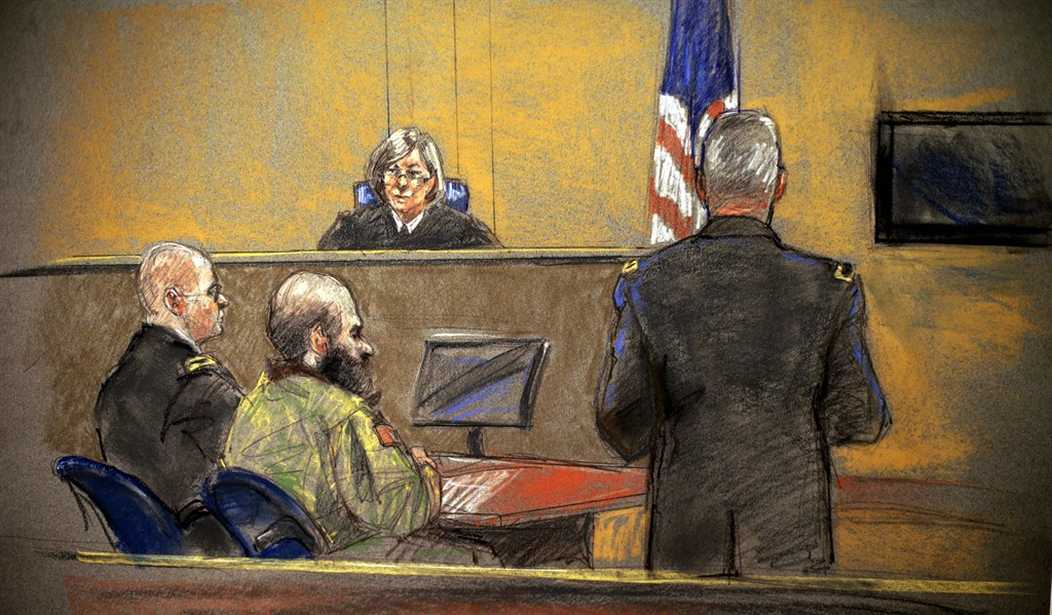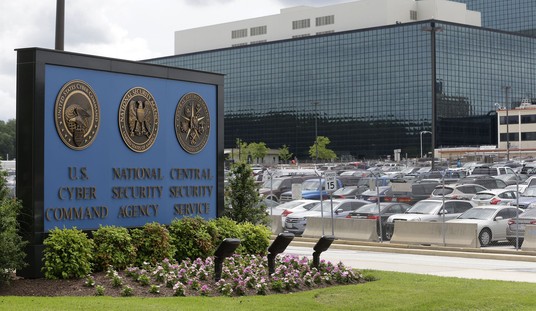Last week, a jury of 13 military officers found Army Major Nidal Malik Hasan guilty of 13 counts of murder and 32 counts of attempted murder for his shooting rampage at the Soldier Readiness Processing Center at Fort Hood in November 2009.
The conviction followed a trial in which Hasan, acting as his own legal representative, offered little by way of defense and stated early in the trial that evidence would show that, “I am the shooter.”
Hasan’s conviction notwithstanding, the public, U.S. law enforcement agencies, and the broader counterterrorism community must not allow this small legal victory to cloud the larger reality that the threat of homegrown radicalization and domestic terror persists.
Hasan, an army psychiatrist, had become radicalized over the years preceding the shooting and had in fact communicated via email with noted terrorist and terror-enabler Anwar al-Awlaki. Hasan’s transformation from radicalized sympathizer to operational terrorist was a deadly example of the often tenuous line that exists between inflammatory rhetoric and violent action.
Although the Obama administration designated the Fort Hood shooting as an act of “workplace violence,” akin to the type of violence committed by a disgruntled employee, Hasan’s act of terror represented but one act of homegrown terror amidst dozens of other such acts that have been perpetrated or attempted in recent years.
In fact, a study by the Heritage Foundation revealed that at least 50 acts of terror directed at the United States have been foiled since 9/11, many of which originated within the U.S. itself.
Recommended
These acts included the attempted Times Square car bombing in May 2010, the failed NYC Subway bombing plot in September 2009, and the case of Umar Farouk Abdulmutallab, the infamous “underwear bomber” who attempted to detonate explosives hidden in his underwear while on a plane headed toward Detroit on Christmas Day 2009.
The prevalence of homegrown terror has increased in the wake al Qaeda's inability to operate with impunity from safe havens throughout the world.
Following the collapse of the Taliban in Afghanistan, al Qaeda central splintered into myriad regional factions, and in so doing its ability to coordinate large scale attacks suffered considerably. As a result, it became necessary to promote greater autonomy within the radical Islamist movement.
Terrorist groups such as al Qaeda in the Arabian Peninsula aggressively promoted virulent rhetoric online and offered operational how-to guides, through their online magazine Inspire, designed to assist the do-it-yourself terrorist in developing and carrying out an act of terror against the West.
As al Qaeda and its sympathizers have ratcheted up their online rhetoric they have managed to draw many into their radical fold. Prior to his death, Awlaki had acted as a bridge figure linking disaffected individuals to the romanticized world of jihad.
Among the numerous homegrown terrorists linked to Awlaki were Hasan and Virginia-born Zachary Chesser, who was arrested and convicted of attempting to aid al Shabaab, an Islamist terrorist organization in Somalia.
Domestic law enforcement and counterterrorism operators must remain vigilant amidst the ongoing threat of homegrown radicalization and domestic terror. This applies to state and local officials too. It’s not enough to leave the fight against domestic terror up to the federal government alone.
Despite intermittent victories, such as the conviction of Major Hasan, maintaining security against the threat of homegrown radicalization and domestic terror is a shared responsibility. It rests upon the full cooperation and participation of actors at all levels of government as well as the determined vigilance of the American people.























Join the conversation as a VIP Member